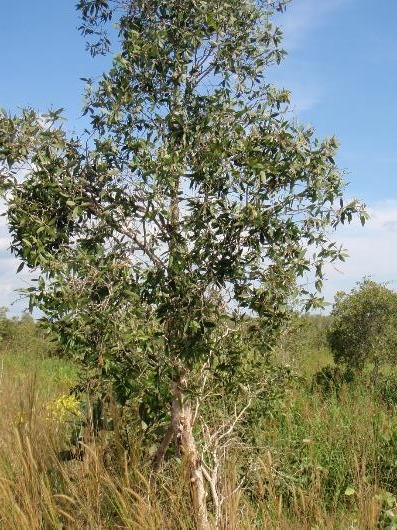Sustainable food systems deliver both food security and nutrition without compromising future needs. In many countries in Southeast Asia, food production has been leading to stark increases in deforestation and degradation. The region’s tropical peatlands are currently under threat due to conversion to palm oil, pulp wood and other food crops. This can still be turned around through innovative approaches.
With support from the UN-REDD Programme, paludiculture, the productive use of peatland, has been introduced in countries like Indonesia, allowing local communities to use food crops and develop economically viable alternatives to palm oil production. Such efforts can lead to the preservation of peat lands while ensuring sustainable food supply and reducing emissions.
Learning new innovations
Historically, farmers in Indonesia relied on non-timber forest products like rattan and jelutung resins. In recent years, however, they increasingly rely on commodity crops like palm oil which cannot be grown sustainably on peatland. The required drainage to cultivate these crops to generate an acceptable yield has led to higher emissions, subsidence and repeated fires which make up 60 percent of Indonesia’s total emissions.
The large-scale conversion of tropical peat into palm oil is not sustainable and leads to continued deforestation. To address this, advanced approaches are needed to develop science-based solutions that facilitate value chain innovations that bring together the private sector, farmers and researchers. Solutions such as those implemented in Holland where farmers set out to reduce subsidence by 90 percent and reduce emissions through the development of feasible wet agricultural options.
Using local crops to preserve peatlands
Paludiculture or wet agriculture and forestry on peatlands can offer alternatives to palm oil production in tropical peatlands. Paludiculture has many benefits including decreasing emissions from peat soil; allowing the production of clean biomass that does not compete with food production; and, restoring and maintaining habitats for rare and threatened species.
However, the development of a paludiculture value chain to enable the restoration of peatland has proven to be challenging. Of the 534 useful PSF peat swamp forests species identified, 514 can be found in Indonesia. Many of these species have multiple uses, but the main uses are timber, medicine and food.
Through the UN-REDD programme, Indonesia implemented the Lanskap project which has assessed a number of potential opportunities and engaged with stakeholders involved in the production and trading of Sago (Metroxylon sago), Jelutung (Dyera polyph) and Gemor (Nothaphoebe coriacea Kosterm).
The project showed that paludiculture is a viable economic alternative for smallholder farmers, compared with palm oil. If the cost of emissios are accounted for, the difference is even more striking. This means that innovation in these value chains will provide smallholders with viable economic opportunities that reduce emissions, provide income and reduce fire risk.
Sago
The demand for sago starch for biodegradable plastic could create an economically feasible alternative for smallholders. This is critical for moving towards sustainable, large-scale restoration of peat ecosystems in South East Asia and will provide consumers in Southeast Asia an alternative that could address marine plastic pollution. Research shows that starch-based compositions are a safer alternative to conventional packaging materials, especially if there is a probability of getting this waste into a marine environment where it is fully biodegradable. However, more research is needed on the impact in more complex microorganisms.
Gelam
With its partners, the UN-REDD Programme is currently assessing the possibilities for promoting the use of gelam as timber for municipal governments in Europe. Gelam (Melaleuca leucadendra) is a common forest tree species growing in degraded peat soils in the coastal regions of southern Kalimantan. Gelam produces charcoal, essential oils, poles and sawn-timber. Gelam timber businesses are managed either by smallholders or small-scale saw-millers. They produce stakes, poles and sawn-timber, all in high demand. The business model for this timber is based on establishing sound ownership of the resource through farm forestry that could include carbon farming.
Local crops, such as Gelam and Sago, have the potential to reduce peat degradation and ensure a sustainable food supply. UN-REDD will continue to facilitate stakeholder-driven, value chain development through collaboration between smallholders, traders and the private sector, including plastic producers, food processors and timber importing companies. This will help build on peer-to-peer learning and use scientifically-defined solutions to create value chains based on tropical peat commodities. A pilot has also been initiated to revitalize local economies by developing new markets for paludiculture crops that reduce emissions.
As the COVID-19 pandemic continues to wreak havoc in countries such as Indonesia, it has become more critical to preserve forests and peatlands to meet the needs of present and future generations and protect them from future pandemics.


